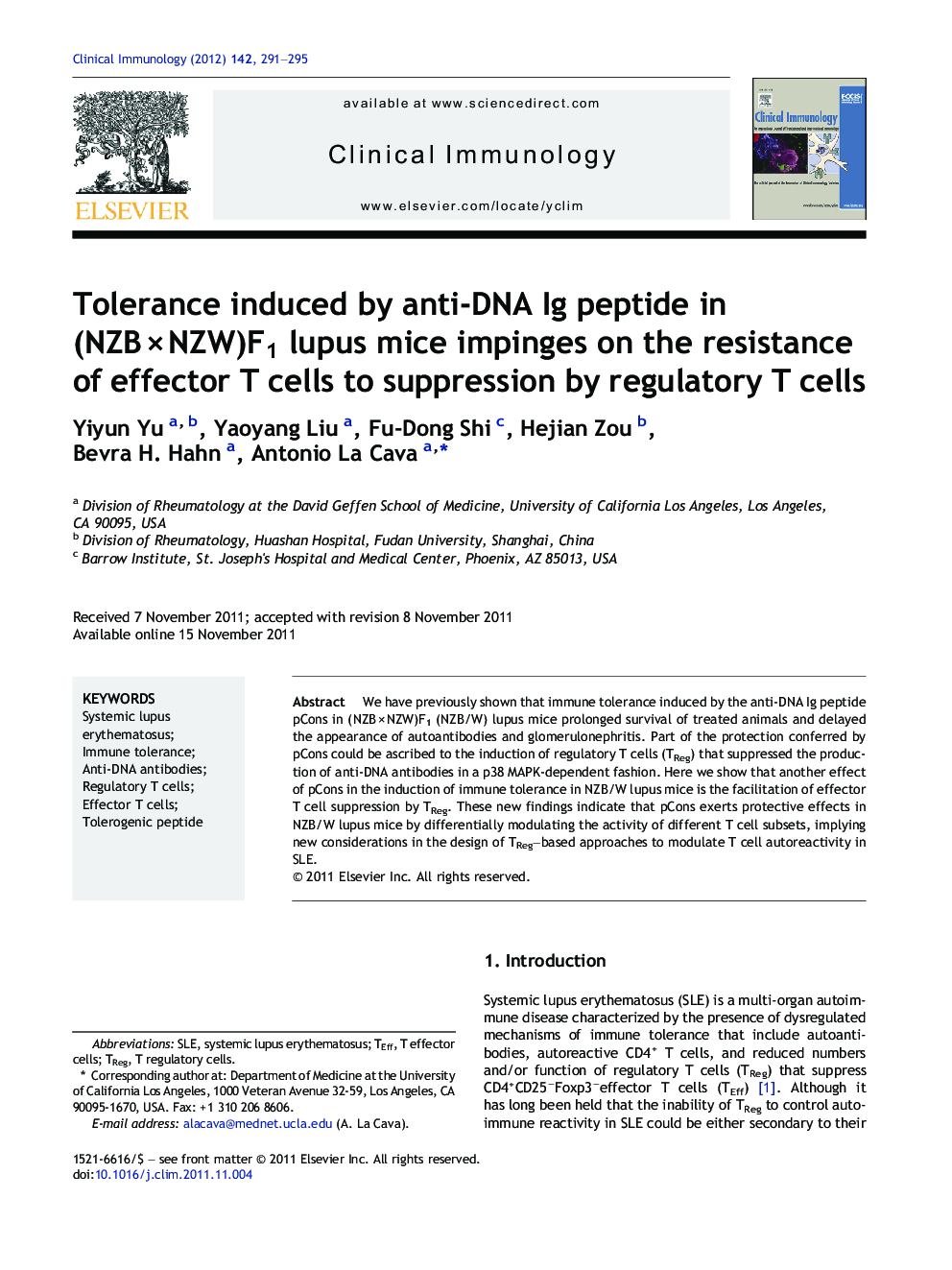| Article ID | Journal | Published Year | Pages | File Type |
|---|---|---|---|---|
| 3257169 | Clinical Immunology | 2012 | 5 Pages |
We have previously shown that immune tolerance induced by the anti-DNA Ig peptide pCons in (NZB × NZW)F1 (NZB/W) lupus mice prolonged survival of treated animals and delayed the appearance of autoantibodies and glomerulonephritis. Part of the protection conferred by pCons could be ascribed to the induction of regulatory T cells (TReg) that suppressed the production of anti-DNA antibodies in a p38 MAPK-dependent fashion. Here we show that another effect of pCons in the induction of immune tolerance in NZB/W lupus mice is the facilitation of effector T cell suppression by TReg. These new findings indicate that pCons exerts protective effects in NZB/W lupus mice by differentially modulating the activity of different T cell subsets, implying new considerations in the design of TReg–based approaches to modulate T cell autoreactivity in SLE.
► We studied the effects of the tolerogenic peptide pCons on TEff in NZB/W lupus mice. ► We found that pCons decreased the resistance of TEff to suppression by TReg. ► The findings are relevant in the design of TReg-based therapies in SLE.
